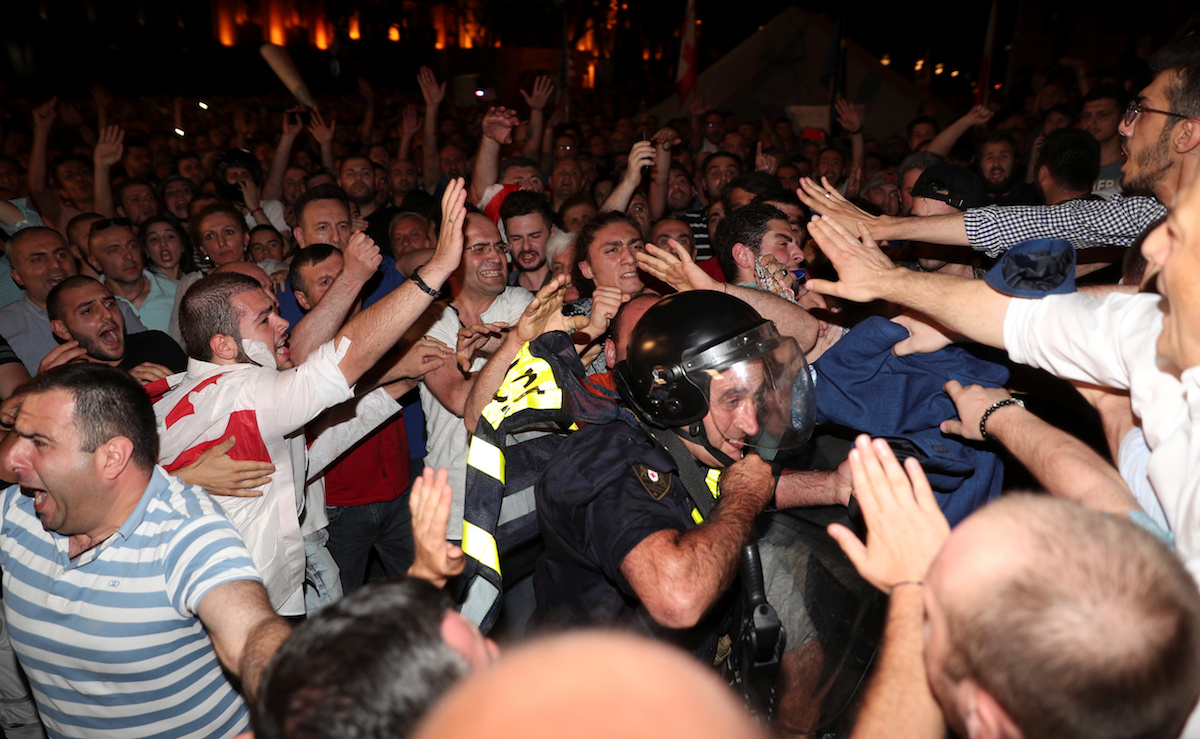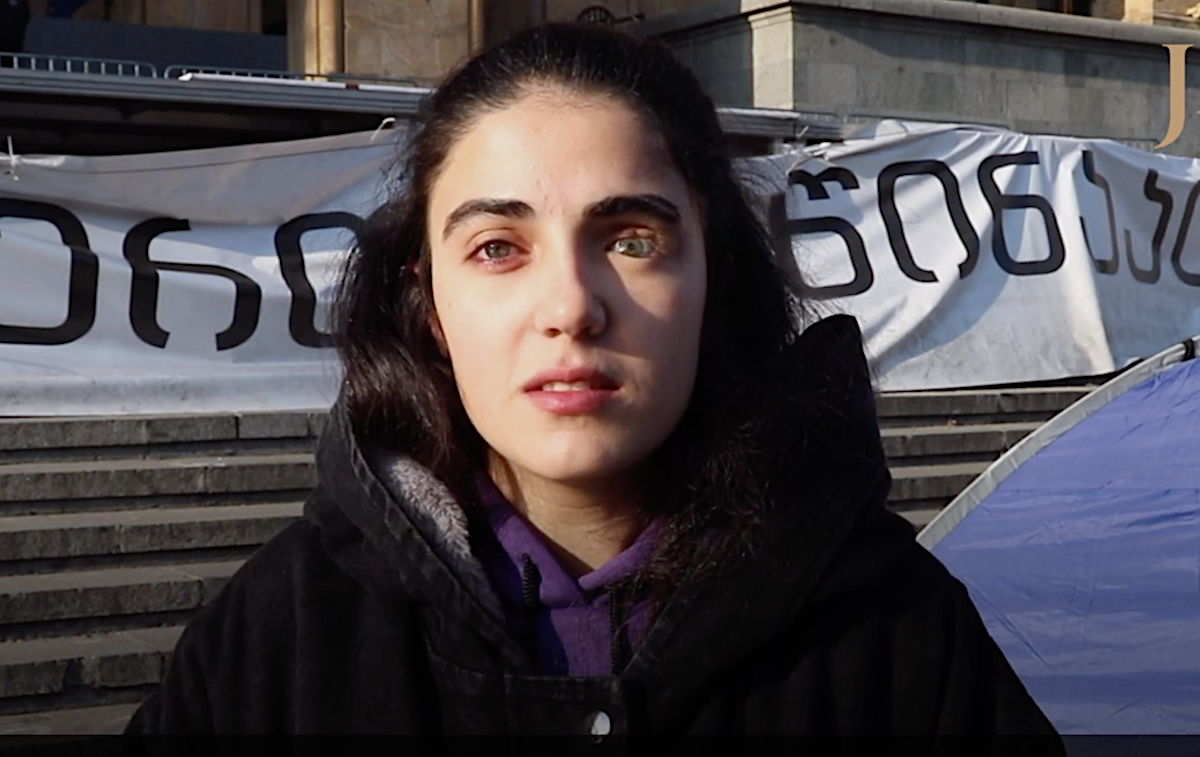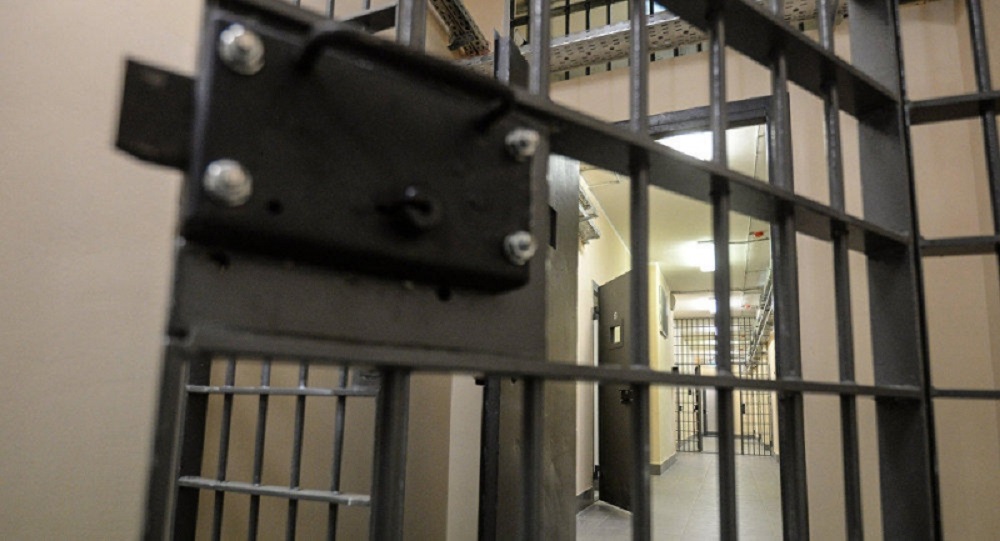Giorgi Gakharia: 'In 2019, I gave no order to use special means except water cannons and tear gas'
Investigation into Georgia’s Gavrilov Night
Former Prime Minister, ex-Interior Minister, and leader of the For Georgia party Giorgi Gakharia told Georgia’s ruling party parliamentary investigative commission that during the dispersal of a protest on 20 June 2019, he ordered the use of tear gas and water cannons — but not rubber bullets.
On 14 April 2025, Gakharia appeared before the investigative commission of the Georgian Dream-dominated parliament. He is being questioned about his actions and decisions during his time as Interior Minister and later as Prime Minister, including those related to the events of 20 June 2019.
That day, several thousand people gathered outside the parliament building in Tbilisi after Russian MP Sergey Gavrilov, during an official visit, sat in the parliamentary speaker’s chair and addressed the chamber in Russian. The protest was violently dispersed — including the use of rubber bullets.
“The order to use special means, according to the relevant plan and the Law on Police, was issued by me in cases involving tear gas and water cannons. In all other cases, neither I nor my deputies issued any such order. This exact statement is recorded in the interrogation protocol,” Gakharia said.
Georgian Dream MP Tea Tsulukiani asked Gakharia whether this meant the decision to use rubber bullets had been taken by specific armed units on the ground. She also asked whether he knew who had authorised the use of other special means, including rubber bullets.
“Neither I nor my deputies gave such an order. If I had known such an order existed or who had given it, I would have informed the investigation during questioning,” Gakharia responded.
According to Gakharia, to fully understand the broader context of the 2019 events, it is essential to question Bidzina Ivanishvili — chair of Georgian Dream and Georgia’s de facto ruler — who invited Gavrilov to the country and assumed responsibility for the associated risks.
“Ivanishvili invited Gavrilov and took responsibility for ensuring the resulting risks would be manageable — then he simply disappeared.
I also believe we should question the Prosecutor General, who has dragged out this case to the point where Strasbourg has already indicated the investigation is being delayed. We must also summon the head of Georgia’s State Security Service, who should have anticipated the risks and informed relevant agencies in advance.
I don’t know whether you will do this or not — but if you don’t, this commission will be one of half-truths, and therefore, a commission of lies,” Gakharia said.
What happened on 20 June 2019?
On 20 June 2019, a plenary session of the Interparliamentary Assembly on Orthodoxy was scheduled to take place in Tbilisi. The right to open the event was given to Russian MP Sergey Gavrilov, who began the session while seated in the chair of the Georgian parliamentary speaker and speaking in Russian — sparking outrage and mass protests.
At dawn on 21 June, special police units dispersed thousands of demonstrators outside the parliament building in Tbilisi. The protest had begun at 7 p.m. the previous evening. At the time, Georgia’s Minister of Internal Affairs was Giorgi Gakharia.
According to journalists, at least 30,000 people took part in the protest. It was not organised by political parties, although members of the opposition and civil society activists did join.
Protesters demanded the resignation of the Interior Minister, the head of the State Security Service, the Prime Minister, and then-Speaker of Parliament Irakli Kobakhidze.
Demonstrators made several attempts to storm the parliament building, after which police used rubber bullets, tear gas, and water cannons. Hundreds were injured and arrested, and several protesters were left blind in one eye after being hit by rubber bullets.





















